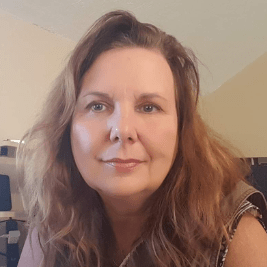The number of people living with dementia and Alzheimer's Disease is expected to rise to 75.6 million by 2030, and 135.5 million by 2050 (source). Dementia and other similar conditions often cause older adults to become confused or lost in both familiar and unfamiliar places.
If an aging loved one becomes lost or disoriented at times you may want to consider utilizing a GPS locator or a wearable device in order to track their whereabouts and find them in an emergency. GPS Trackers have the ability to provide you with a position coordinate and timestamp which enables you to monitor your aging loved one's location at any time. (Source: nlm.gov)
The development of GPS medical alert systems has changed the way the elderly receive round-the-clock care while living at home. The changing technology does offer comfort for caregivers and autonomy to the elderly.
The use of GPS Trackers for the elderly such as those offered by Tranquil, Medical Guardian, AngelSense, Pocketfinder, iTraq, Spy Tec, SPOT, GPS SmartSole, Trackimo, and Bay Alarm Medical can bring your aging loved one safely home and provide greater peace of mind for caregivers and family members of people with dementia.
The Pros and Cons of Geolocation Tools for Seniors
The adoption of GPS medical technology has its pros and cons. Before purchasing and jumping into using a GPS medical device (mobile or wearable) read the list below to determine if utilizing this technology is the right choice for you and your loved one.
Those that use a GPS tool to monitor their loved ones have noted that it does offer the ability for both the wearer and caregiver to live an independent life but remain connected in the event of an emergency.
The downside of using a GPS tool is misguided safety. Overly relying on the device may give the wearer more freedom but that can come with decreased physical interaction and connection. Requiring the device to be on the person at all times can prove difficult if the wearer simply removes it or leaves it at home. Also, privacy can become a source of contention since the device will be tracking and monitoring the wearer at all times.
The information below describes the pros and cons of the specific geolocation tools in more detail.
General Concerns of Technology in Home Care
Keep the following questions in mind when determining what tool is best for you and your loved one:
- Will it replace the element of personal contact?
- If the technology of a GPS locator is how health is monitored, will the family or caregiver not check-in as often and provide the personal, emotional contact needed?
These concerns are valid and will take time to answer since emerging technology is new and rapidly changing.
Wearable Technology and Mobile Apps
GPS technology for the older and/or infirm can be wearable or in the form of a mobile app. These tools are specifically designed to track and monitor the location of a person. The person will be connected to a caregiver through this device.
| Pros | Cons |
| · Each wearable and/or mobile device can provide targeted monitoring and unique data collection.
· The device can notify individual of leaving designated area (i.e. home property). · In an emergency, the tools can connect to the appropriate emergency responders. · If the wearer is lost, the devices can guide them to their desired location. |
· Each device requires the user to wear the device (i.e. heart monitor) or to carry his or her phone with them at all times.
· The devices, if not charged or properly powered, could provide misguided safety. · Requires multiple users to actively use and monitor tool/device. · The tool does not lead to action without a crisis/emergency plan. |
Remote Monitoring Tools
In a different look at GPS tools, remote monitoring devices create a direct link between your loved one and access to health monitoring tools. This type of technology allows an individual to actively monitor his or her health remotely.
| Pros | Cons |
| · Allows seniors to keep a closer eye on their daily health from their home.
· Cuts down on the stress that going to the doctor can create. · Can help with managing medication and daily intake. · Provides increased immediate access to medical care, reducing the impact of health-related emergencies. |
· The user may rely too much on the alert systems causing them to not pay as much attention to general and/or feelings changes in condition.
· If the home monitoring tool does not detect something the individual may not consider what they feel as significant enough to alert his or her physician. · Could promote an isolated or sedentary lifestyle by reducing the need to leave the home. · Can cause a reduction in privacy of personal health information. |
In general, the tools listed above do provide tremendous opportunities to improve the quality of care. The growing market of technologies is not a way to relieve the responsibility of the caregiver, but they should enhance a caregiver's ability to provide comprehensive and high-quality care for their loved one.
A Few Things to Consider Before You Purchase
- What Type of Device is Best Suited to Your Situation? Depending on the severity of your loved one's dementia you may need a vehicle tracking device in case they get turned around, or you may need a wearable tracker that can tell you if they leave the house on foot.
- Will your loved one be receptive to wearing a tracking device? Your loved one may be resistant to having their activities monitored during the early stages, or they may find security in knowing that help is available to them should they become lost or confused.
- What Features Are Must-Haves? GPS trackers come with many features including; geofencing, SOS buttons, two-way calling, and voice monitoring.
- Will There Be Any Additional Fees? Many GPS trackers require a monthly fee, so be sure you understand the costs involved before you purchase.



